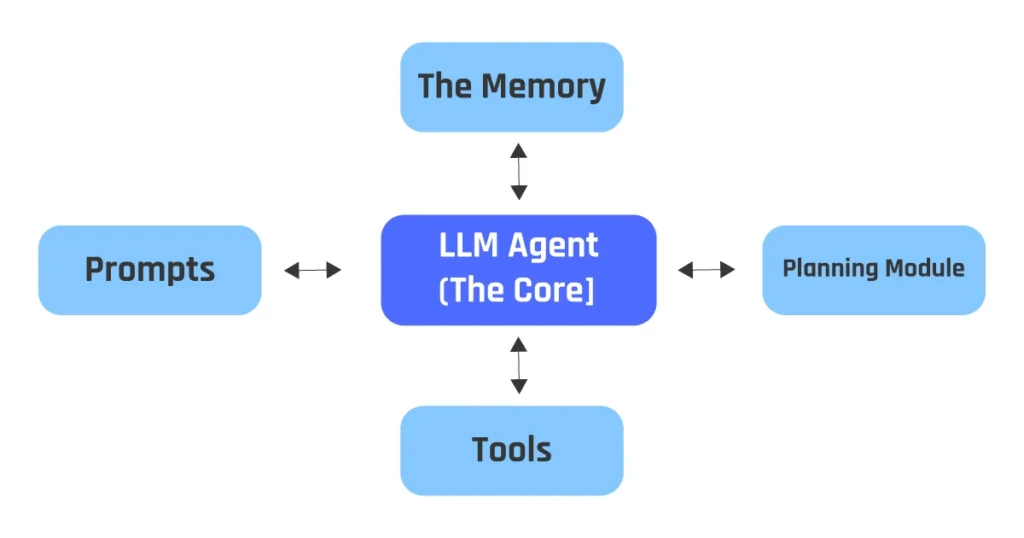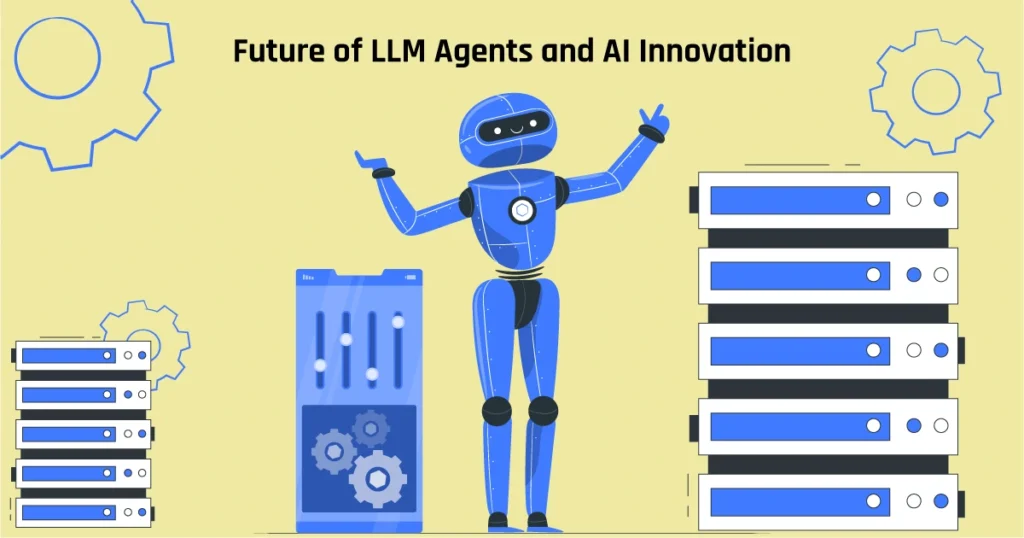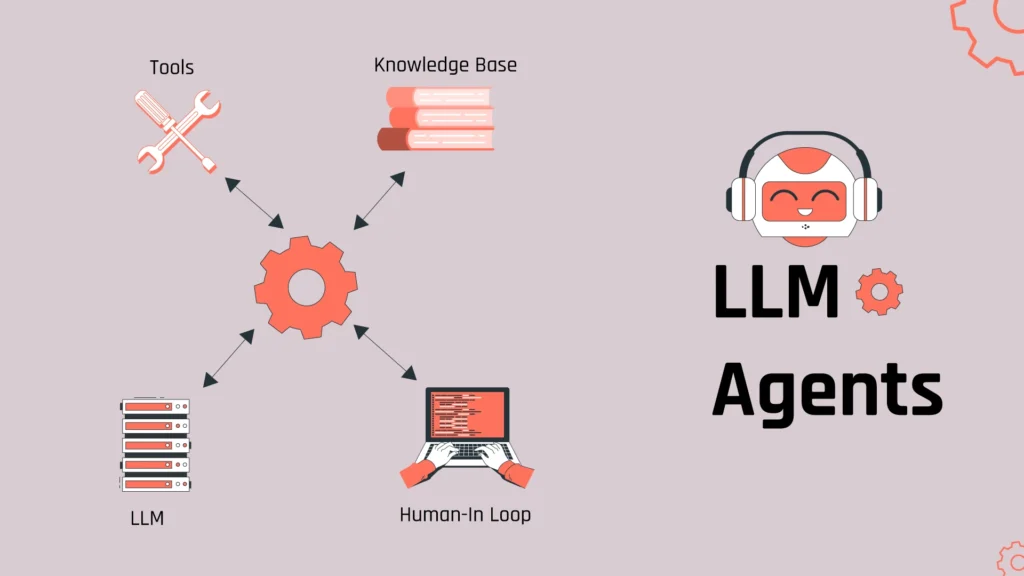Introduction: Understanding LLM Agents and Their Role in AI Innovation
The rapid development of Artificial Intelligence (AI) has led to the creation of several advanced technologies that are reshaping industries and enhancing human capabilities. Among these innovations, Large Language Model (LLM) Agents have emerged as a powerful tool driving AI’s evolution. This article explores what LLM agents are, their applications, and the impact they have on AI innovation across various sectors.
LLM agents are designed to comprehend and process natural language with remarkable accuracy, enabling them to perform complex tasks such as content generation, automated communication, and data analysis. These AI-powered agents have the potential to revolutionize industries by automating processes, improving decision-making, and offering personalized experiences.
What are LLM Agents?
LLM agents refer to advanced AI models that utilize large language models, trained on vast amounts of text data, to understand and generate human-like text. These agents leverage deep learning techniques, such as transformers, to analyze the input data and produce contextually relevant outputs.
The most prominent example of an LLM agent is OpenAI’s GPT (Generative Pre-trained Transformer) series. These models can understand complex prompts, hold conversations, and even generate creative content, making them valuable tools for a variety of industries.
How LLM Agents Work?
At the core of LLM agents is a neural network architecture known as the transformer. This architecture enables the AI to process large amounts of data simultaneously, which enhances its ability to recognize patterns, comprehend context, and generate coherent responses.

LLM agents are pre-trained on vast datasets that include books, articles, websites, and other sources of human knowledge. During the training phase, the models learn to predict the next word in a sequence based on the context of the previous words. This learning process allows them to acquire knowledge about language structure, grammar, and even factual information.
Once trained, LLM agents can be fine-tuned for specific tasks by providing them with additional domain-specific data. This customization allows the agents to perform tasks such as customer service, content creation, and even technical problem-solving.
Applications of LLM Agents in AI Innovation
LLM agents are transforming industries and opening up new possibilities for automation and innovation. Some of the key applications include:
- Content Generation and Copywriting: LLM agents have the ability to generate high-quality content for blogs, articles, and marketing materials. With the help of AI, businesses can produce large volumes of content efficiently, ensuring that it resonates with their target audience.
- Customer Support and Chatbots: AI-powered chatbots, driven by LLM agents, are improving customer service by providing immediate responses to queries. These chatbots can handle routine inquiries, troubleshoot problems, and offer personalized recommendations, enhancing the customer experience.
- Data Analysis and Reporting: LLM agents are capable of processing and analyzing vast amounts of data. This allows businesses to generate insights, automate reporting, and make data-driven decisions. With the power of AI, businesses can unlock valuable information hidden in large datasets.
- Healthcare and Medical Applications: In the healthcare industry, LLM agents are being utilized to assist doctors in diagnosing diseases, analyzing medical records, and providing treatment recommendations. These agents can process medical texts, research papers, and patient histories to offer valuable insights.
- Legal Industry Automation: Legal firms are leveraging LLM agents to automate tasks such as document review, contract generation, and legal research. By automating these repetitive tasks, lawyers can focus on higher-value activities like strategy development and client consultation.
Benefits of LLM Agents

- Improved Efficiency: LLM agents can process information and perform tasks much faster than humans. This leads to significant improvements in efficiency, allowing businesses to save time and resources.
- Cost Reduction: By automating tasks such as customer service, content creation, and data analysis, businesses can reduce the need for human labor, leading to cost savings.
- Scalability: LLM agents can handle an increasing volume of tasks without sacrificing performance. This scalability makes them an ideal solution for businesses looking to grow rapidly.
- Accuracy: LLM agents can analyze and process large datasets with high accuracy, minimizing human error and improving the quality of results.
- Personalization: By understanding context and user preferences, LLM agents can provide highly personalized experiences. This is especially valuable in customer-facing applications such as e-commerce, marketing, and content creation.
Challenges and Limitations of LLM Agents
While LLM agents offer numerous benefits, there are also challenges and limitations that need to be addressed:
- Bias in AI Models: LLM agents are trained on data collected from various sources, and some of this data may contain biases. These biases can be reflected in the AI’s output, leading to skewed or unfair results. Ensuring that LLM agents are trained on diverse and unbiased data is essential for mitigating this issue.
- Lack of Emotional Intelligence: While LLM agents are great at processing information, they lack the emotional intelligence that humans possess. This can make it difficult for them to fully understand and respond to emotional cues in communication, especially in customer service applications.
- Data Privacy Concerns: LLM agents rely on vast datasets to function effectively, raising concerns about data privacy and security. Organization’s need to ensure that they comply with data protection regulations and protect sensitive information.
- Complexity of Implementation: While LLM agents are powerful tools, implementing them in an organization can be complex and requires significant technical expertise. Fine-tuning these models for specific tasks and ensuring their integration with existing systems can be a challenge.
Future of LLM Agents and AI Innovation
The future of LLM agents looks promising, with continuous advancements in AI research and technology. As the capabilities of LLM models expand, they will become even more integrated into everyday life, transforming industries and the way we work.

Some potential developments in the future include:
- Greater Accuracy and Precision: As LLM agents evolve, their ability to generate more accurate and relevant content will improve, making them even more valuable in industries such as healthcare, law, and customer service.
- Integration with Other AI Technologies: LLM agents will likely be integrated with other AI technologies, such as computer vision and machine learning, to offer more comprehensive solutions across various domains.
- AI Regulation and Ethics: As the use of AI expands, it will be essential to develop ethical frameworks and regulations to ensure that LLM agents are used responsibly and fairly.
The Future
LLM agents are at the forefront of AI innovation, providing valuable solutions for various industries. Their ability to automate tasks, enhance decision-making, and offer personalized experiences is transforming the way businesses operate. However, challenges such as bias, emotional intelligence, and data privacy need to be addressed as these technologies evolve. The future of LLM agents holds great promise, with continuous advancements likely to bring about even more powerful and efficient AI systems.

